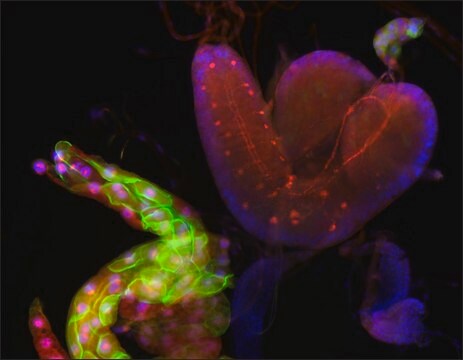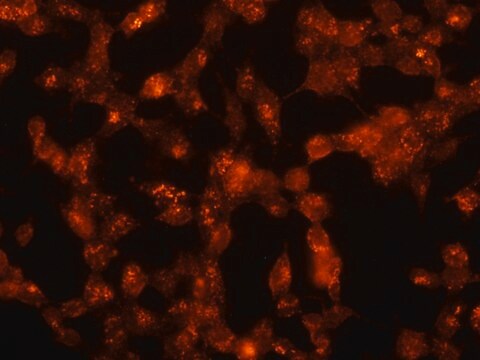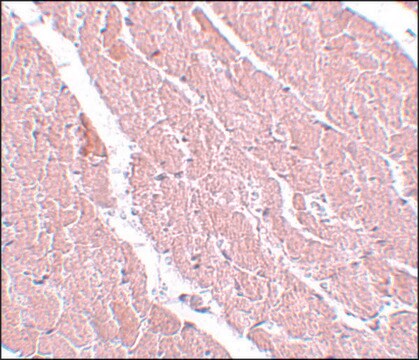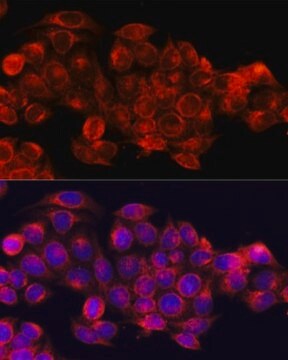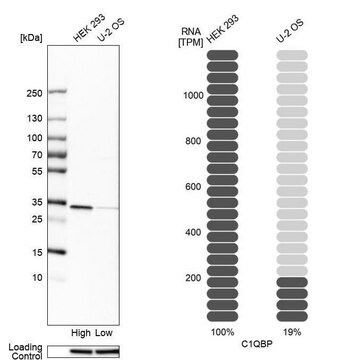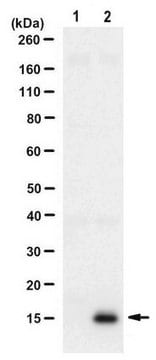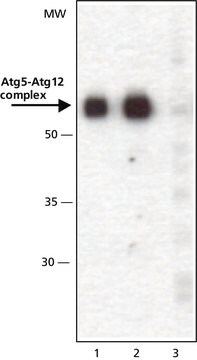ABC344
Anti-ATG13 Antibody
from rabbit, purified by affinity chromatography
Synonym(e):
Autophagy-related protein 13
About This Item
Empfohlene Produkte
Biologische Quelle
rabbit
Qualitätsniveau
Antikörperform
affinity isolated antibody
Antikörper-Produkttyp
primary antibodies
Klon
polyclonal
Aufgereinigt durch
affinity chromatography
Speziesreaktivität
mouse, rat
Speziesreaktivität (Voraussage durch Homologie)
human (immunogen homology)
Methode(n)
immunofluorescence: suitable
immunohistochemistry: suitable
western blot: suitable
UniProt-Hinterlegungsnummer
Versandbedingung
wet ice
Posttranslationale Modifikation Target
unmodified
Angaben zum Gen
human ... ATG13(9776)
mouse ... Atg13(51897)
Allgemeine Beschreibung
Immunogen
Anwendung
Apoptose & Krebs
Apoptose - Weiterführende Produkte
Immunofluorescence Analysis: 20 μg/mL from a representative lot detected ATG13 in mouse heart cells.
Qualität
Western Blotting/Peptide Inhibition Assay Analysis: 1 µg/mL of this antibody detected ATG13 in 15 µg of rat heart tissue lysate.
Zielbeschreibung
Physikalische Form
Lagerung und Haltbarkeit
Hinweis zur Analyse
Rat heart tissue lysate
Sonstige Hinweise
Haftungsausschluss
Sie haben nicht das passende Produkt gefunden?
Probieren Sie unser Produkt-Auswahlhilfe. aus.
Lagerklassenschlüssel
10 - Combustible liquids
WGK
WGK 2
Flammpunkt (°F)
Not applicable
Flammpunkt (°C)
Not applicable
Analysenzertifikate (COA)
Suchen Sie nach Analysenzertifikate (COA), indem Sie die Lot-/Chargennummer des Produkts eingeben. Lot- und Chargennummern sind auf dem Produktetikett hinter den Wörtern ‘Lot’ oder ‘Batch’ (Lot oder Charge) zu finden.
Besitzen Sie dieses Produkt bereits?
In der Dokumentenbibliothek finden Sie die Dokumentation zu den Produkten, die Sie kürzlich erworben haben.
Unser Team von Wissenschaftlern verfügt über Erfahrung in allen Forschungsbereichen einschließlich Life Science, Materialwissenschaften, chemischer Synthese, Chromatographie, Analytik und vielen mehr..
Setzen Sie sich mit dem technischen Dienst in Verbindung.